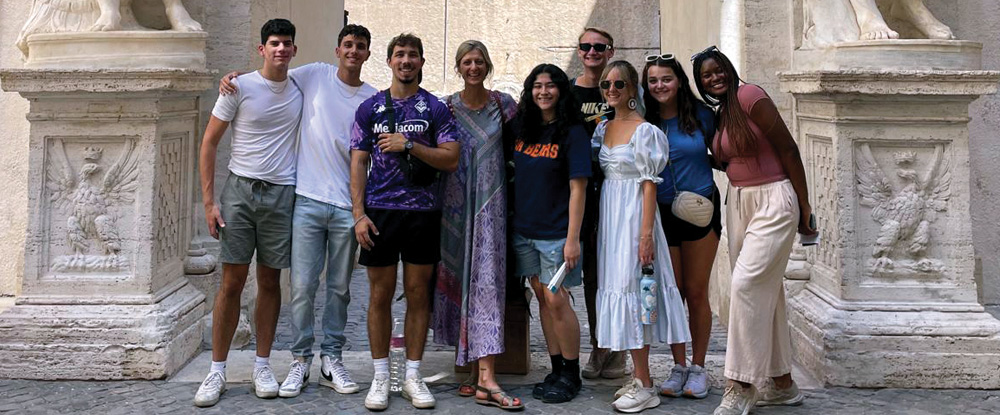“If you talk to a man in a language he understands, that goes to his head. If you talk to him in his own language, that goes to his heart.” — Nelson Mandela
“Ubuntu” is a term from the Nguni Bantu language, spoken by the Nguni people in southern Africa. It embodies the concept that “we, as humans, are bound together in ways we cannot see.” Another way to express this idea is, “I am what I am because of who we all are.”
In an interconnected world, understanding this interconnectedness can help better grasp its complexity. Danish artist and climate activist, Olafur Eliasson, highlights that interconnectedness is one of the great powers of the arts as it reaches people, touches them, and fosters empathy and compassion. Beyond the arts, interconnectedness is also a core concept in the humanities.
The humanities illuminate the interconnectedness of human experiences, values, and aspirations; the connections between the past, present, and future; and the relationship between the microcosm and the macrocosm. They provide the perfect framework for understanding and embracing human-to-human, human-tonature, and human-to-AI interconnectivity.
During the summer semester, Sara Agnelli, the center’s associate director, taught a humanities course for the “UF in Rome” international program. This program helps students broaden their understanding and appreciation of global perspectives, encourages an open-minded approach to diverse viewpoints, and fosters a deeper connection to the world beyond their own.
Embracing interconnectedness through the humanities not only enriches individual perspectives but also lays the foundation for a more empathetic and united global community. This understanding is crucial as society navigates the complexities of the modern world and strives for a sustainable and inclusive future. Learning about interconnectedness through the humanities will be key to humanity’s survival in the 21st century.
When in Rome
“The newfound perspectives gathered have shifted my thinking immensely and broadened how I viewed the world. Before embarking on the study abroad journey, one of my goals was to immerse myself in the culture as much as possible. Speaking Italian whenever I went to restaurants or met new Italians was one of the best ways to practice this…Seeing someone come to life and become more animated when speaking in their native tongue was something I will never take for granted. Through learning a new language, one can learn how to express new emotions in a new way and listen to the stories of those around them. Becoming a better speaker of the language allows one to become a better listener. There are many lessons learned during the six weeks here, but the thing I will remember most is the way I felt when seeing people speak in their native tongue.” — Tori Ragin, 2024, UF in Rome
